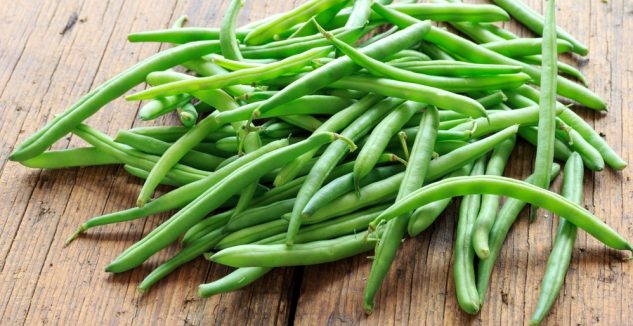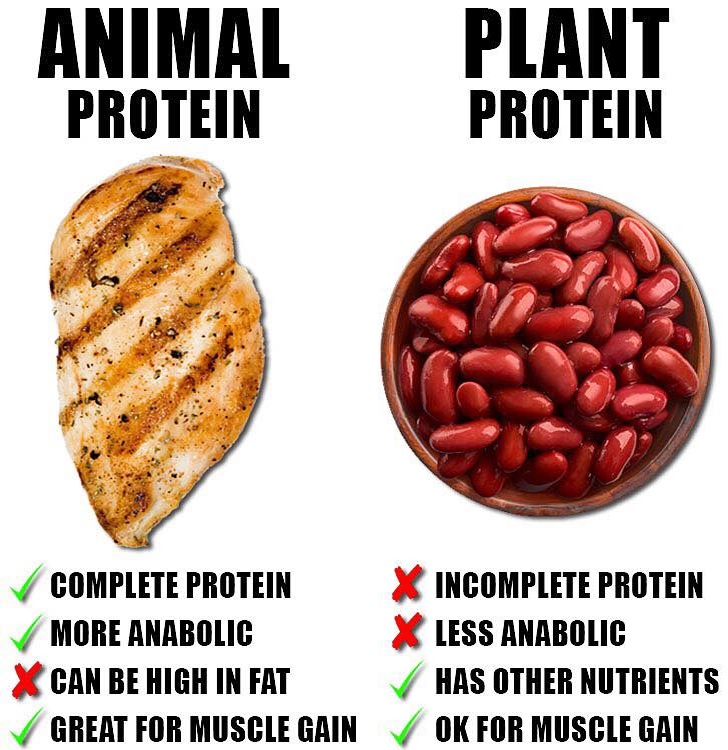
Is There Actually a Difference?
To answer this question, we've got to take a step backwards and delve into amino acids as these are the building blocks of protein and muscle tissue.
Proteins are often referred to as the building blocks of life. Protein occurs in all living cells and has both functional and structural properties. It's an essential part of the diet as it helps the body to repair cells and make new ones.
Protein exists in both plants and animals. When digested it's broken down into amino acids, of which there are three types:
- Essential - there are nine amino acids which cannot be produced by the body and must be supplied by food. This includes the three branched chain amino acids.
- Non-essential - the body is able to breakdown proteins and other amino acids to make these.
- Conditional - are needed in times of stress, illness, or intense physical exercise. Under certain extreme physiological conditions such as in prematurity or during some catabolic illnesses, a number of these non-essential amino acids may be required in the diet.
A complete protein source refers to a type of food that contains all nine essential aminos. Having the right ratios can help the body to recover and build muscle more efficiently. Therefore it's worth knowing the differences between the types of protein sources.

Animal Proteins
- Resemble the amino acid makeup of humans more than plant sources do and are higher quality protein sources.
- Tend to be very high in protein with more fat and cholestrol.
- Sources include meat, poultry, eggs, seafood and dairy products such as cheese and whey.
- Red meat and eggs are high in readily digestible iron and zinc.
- Other nutrients more common in animal proteins are vitamin B12 (fish, meat, poulty, dairy), and vitamin D (fatty fish, eggs, dairy). B12 is a common deficiency for those who avoid animal foods.
- Fatty fish is considered healthy due to its fat-based nutrients, in particular docosahexaenoic acid (DHA). Essential fatty acids are vital for heart health and in creating a healthy immune system and reducing inflammation in the body. Inflammation is a leading cause of illness and chronic disease such as arthritis and cancer. However some studies have associated some fish with high mercury content and sustainability issues.
- Eating more animal proteins, especially red meats, may increase the risk of cardiovascular and other diseases. However other studies contradict this and associate only processed red meat with these cardiovascular and cancer risks, according to this study of 448,653 men and women. In any case, replacing processed red meat with a healthier protein source, such as beans, soy, nuts, fish, or poultry can reduce the risk of disease and mortality.
- Include our whey, whey isolate, beef, casein, collagen and egg white protein powders.
Plant Proteins
- Can lack some amino acids which may render them incomplete. Incomplete proteins don't always supply your body with what it requires for optimal recovery and development.
- Generally have less protein but have fibre and other nutrients. Fibre is the part of the food that cannot be digested by the body. It is important in the maintenance of a healthy balanced diet as it helps to keep the digestive system balanced.
- Where they have fats (such as in nuts), the fats tend to be healthier. In fact nuts are not only full of protein, but they're also rich in vitamins, fibre, minerals, tocopherols, B6, folate, and more. Recent studies have also found a link between nuts and preventing type 2 diabeties, as well as a longer life expectancy! Nut intake also lowers cholesterol and LDL cholesterol.
- Have phyto-nutrients and some antioxidants, whereas animal proteins tend to lack these.
- Diets high in plant protein are associated with lower risk of heart disease, stroke, type 2 diabeties, cholesterol, and a longer, healthier life.
- Include our pea isolate, rice, peanut butter, and hemp protein powders. Of note, our amino acid supplements are plant based too - creapure, BCAAs, glutamine, carnitine and pre-workout.

Verdict: All Protein is Not Equal
Animal proteins tend to have an amino acid profile that more closely resembles that of humans. Animal proteins contain some nutrients which are not as common in plant foods, such as omega-3 DHA and vitamin B12.
Plant sources contain fibre and other nutrients vital to maintain health and wellbeing. Though some plant proteins can be incomplete, diets high in plant protein are associated with lower risk of disease and mortality.
We conclude that it is best to consume protein from a variety of sources as this will ensure that your body gets all the essential (and non-essential) amino acids and other key nutrients it requires on a daily basis.

